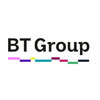Oracle Technical Consultant
20+ Oracle Technical Consultant Interview Questions and Answers

Asked in AppSys Global

Q. What are the key features of Oracle Fusion BI reports?
Key features of Oracle Fusion BI reports include interactive dashboards, ad-hoc analysis, and mobile access.
Interactive dashboards allow users to visualize data in real-time and make data-driven decisions.
Ad-hoc analysis enables users to create custom reports and explore data in a self-service manner.
Mobile access allows users to access reports on-the-go from any device.
Integration with other Oracle applications such as ERP and CRM for seamless data flow.
Advanced data visuali...read more

Asked in Greystar

Q. What is a concurrent program, and what are the steps to register it?
A concurrent program is a program that can be run simultaneously with other programs. Steps to register a concurrent program include defining the program, creating a concurrent program executable, and registering the program with Oracle Applications.
Define the concurrent program by specifying its name, short name, application, and other details
Create a concurrent program executable by specifying the program's execution method, language, and other parameters
Register the concur...read more
Oracle Technical Consultant Interview Questions and Answers for Freshers

Asked in Accenture

Q. What is the difference between OTBI and BIP?
OTBI is a reporting tool for Oracle Cloud applications, while BIP is a reporting tool for on-premise Oracle applications.
OTBI is cloud-based, while BIP is on-premise
OTBI is pre-built with Oracle Cloud applications, while BIP requires customization for on-premise applications
OTBI is more user-friendly and easier to use compared to BIP

Asked in Aseuro Technologies

Q. What is the difference between DELETE, DROP, and TRUNCATE?
Delete, drop, and truncate are SQL commands for managing data, each with distinct functions and implications.
DELETE: Removes specific rows from a table based on a condition. Example: DELETE FROM employees WHERE id = 1;
DROP: Completely removes a table or database from the system. Example: DROP TABLE employees;
TRUNCATE: Quickly removes all rows from a table without logging individual row deletions. Example: TRUNCATE TABLE employees;

Asked in Clover Infotech

Q. Have you customized any standard reports?
Yes, I have customized standard reports to meet specific business requirements and enhance data visibility.
Customized the Sales Report to include additional metrics like year-over-year growth.
Modified the Inventory Report to filter by specific categories and include graphical representations.
Enhanced the Financial Report by adding custom calculations for better financial analysis.

Asked in LTIMindtree

Q. How does an HCM Extract work?
HCM Extract is a tool in Oracle HCM Cloud that allows users to extract and transfer data from the system.
HCM Extracts are used to extract data from Oracle HCM Cloud for reporting, analysis, or integration purposes.
Users can define the data to be extracted, the format of the output, and the delivery method.
HCM Extracts can be scheduled to run at specific times or triggered based on certain events.
Extracted data can be transferred to external systems or stored in a file for fur...read more
Oracle Technical Consultant Jobs




Asked in Fusion Practices

Q. What do you know about the cloud?
Cloud computing enables on-demand access to shared resources, offering flexibility, scalability, and cost-efficiency.
Types of cloud: Public (e.g., AWS, Azure), Private (dedicated infrastructure), Hybrid (combination of both).
Benefits include scalability, allowing businesses to adjust resources based on demand.
Cost-effectiveness: Pay-as-you-go models reduce upfront capital expenses.
Examples of services: IaaS (Infrastructure as a Service), PaaS (Platform as a Service), SaaS (So...read more
Asked in Exacore It Solutions

Q. Different types of languages used in sql
Different types of languages used in SQL include Data Definition Language (DDL), Data Manipulation Language (DML), Data Control Language (DCL), and Transaction Control Language (TCL).
DDL: Used to define and modify the structure of database objects. Examples include CREATE, ALTER, DROP.
DML: Used to retrieve, insert, update, and delete data in a database. Examples include SELECT, INSERT, UPDATE, DELETE.
DCL: Used to control access to data stored in the database. Examples include...read more
Share interview questions and help millions of jobseekers 🌟


Asked in Greystar

Q. What is the difference between procedures and functions?
Procedures and functions are both stored program units in Oracle. Procedures are used to perform an action, while functions return a value.
Procedures are used to perform a specific action or set of actions, while functions are used to return a single value.
Procedures do not return values, while functions always return a value.
Procedures can have input and output parameters, while functions can only have input parameters.
Procedures are called using the CALL statement, while fu...read more

Asked in Avisys

Q. Explain the different modules within Oracle EBS.
Oracle EBS comprises various integrated modules for managing business processes across finance, HR, supply chain, and more.
Financials: Manages accounting, budgeting, and financial reporting.
Human Resources: Handles employee records, payroll, and recruitment.
Supply Chain Management: Oversees inventory, procurement, and order management.
Customer Relationship Management: Manages sales, marketing, and customer service.
Project Management: Facilitates project planning, execution, a...read more

Asked in BT Group

Q. What is the difference between tables and views?
Tables store data in a structured format, while views are virtual tables created by querying one or more tables.
Tables store actual data, while views store queries that dynamically retrieve data
Tables can have indexes and constraints, while views cannot
Tables can be updated directly, while views are read-only unless they are updatable views
Views can simplify complex queries by combining data from multiple tables
Views can also restrict access to certain columns or rows of a ta...read more
Asked in Exacore It Solutions

Q. Different types of ACID properties
ACID properties are a set of properties that guarantee the reliability of database transactions.
Atomicity: Ensures that either all operations in a transaction are completed successfully or none are. For example, transferring money from one account to another.
Consistency: Ensures that the database remains in a consistent state before and after the transaction. For example, maintaining referential integrity.
Isolation: Ensures that the execution of multiple transactions concurre...read more

Asked in Visa

Q. What is the difference between RDBMS and DBMS?
RDBMS is a type of DBMS that stores data in a structured format with relationships between tables.
RDBMS enforces referential integrity through foreign keys.
RDBMS supports ACID properties for transactions.
Examples of RDBMS include Oracle, MySQL, SQL Server.

Asked in LTIMindtree

Q. How does an interface work?
An interface acts as a bridge between two systems, allowing them to communicate and exchange data.
Interfaces define a set of methods that a class must implement.
They provide a way for different systems to interact with each other.
Interfaces can be used to achieve abstraction and polymorphism in programming.
Example: JDBC (Java Database Connectivity) provides an interface for connecting Java applications to databases.

Asked in Clover Infotech

Q. Have you worked on BPM?
Yes, I have worked on BPM, focusing on process automation and optimization using Oracle BPM Suite.
Implemented process automation for a healthcare client, reducing manual tasks by 30%.
Utilized Oracle BPM Suite to design workflows that improved operational efficiency.
Integrated BPM with Oracle SOA Suite for seamless data exchange between applications.
Conducted workshops to train stakeholders on BPM best practices and tools.

Asked in Infosys

Q. What are triggers?
Triggers are database objects that are automatically executed in response to specified events.
Triggers are used to enforce business rules, maintain data integrity, and automate tasks.
They can be defined to execute before or after an event like insert, update, or delete.
Triggers can be written in PL/SQL or Java.
Examples of triggers include auditing changes to a table, updating related records, or validating data before insertion.

Asked in TCS

Q. What are exceptions?
Exceptions are events that occur during the execution of a program and disrupt the normal flow of instructions.
Exceptions are used to handle errors and abnormal conditions in a program.
They allow the program to gracefully handle unexpected situations.
Exceptions can be thrown and caught, allowing for error handling and recovery.
They can be categorized into different types, such as checked and unchecked exceptions.
Examples of exceptions include NullPointerException, ArrayIndexO...read more

Asked in Capita

Q. What are procedures and triggers?
Procedures are stored routines for executing tasks; triggers are automated actions in response to database events.
A procedure is a set of SQL statements that can be executed as a unit. Example: `CREATE PROCEDURE myProcedure AS BEGIN ... END;`
Triggers are special types of stored procedures that automatically execute in response to certain events on a table. Example: `CREATE TRIGGER myTrigger BEFORE INSERT ON myTable FOR EACH ROW BEGIN ... END;`
Procedures can accept parameters ...read more

Asked in Greystar

Q. What are flex fields?
Flex fields are customizable fields in Oracle applications that allow users to capture additional data specific to their business needs.
Flex fields are used to extend the functionality of Oracle applications by adding custom fields.
They can be configured to capture different types of data, such as text, numbers, dates, or even images.
Flex fields provide a flexible and scalable solution for organizations to adapt their applications to their unique requirements.
Examples of flex...read more

Asked in Excelencia ITech Consulting

Q. What is XLA in R12?
XLA in R12 stands for Subledger Accounting, a feature in Oracle E-Business Suite that allows for centralized accounting.
XLA is used to create accounting entries for subledger transactions
It provides a centralized accounting engine for generating accounting entries
XLA allows for customization of accounting rules and setups
It helps in maintaining compliance with accounting standards and regulations
Interview Questions of Similar Designations
Interview Experiences of Popular Companies








Reviews
Interviews
Salaries
Users

















